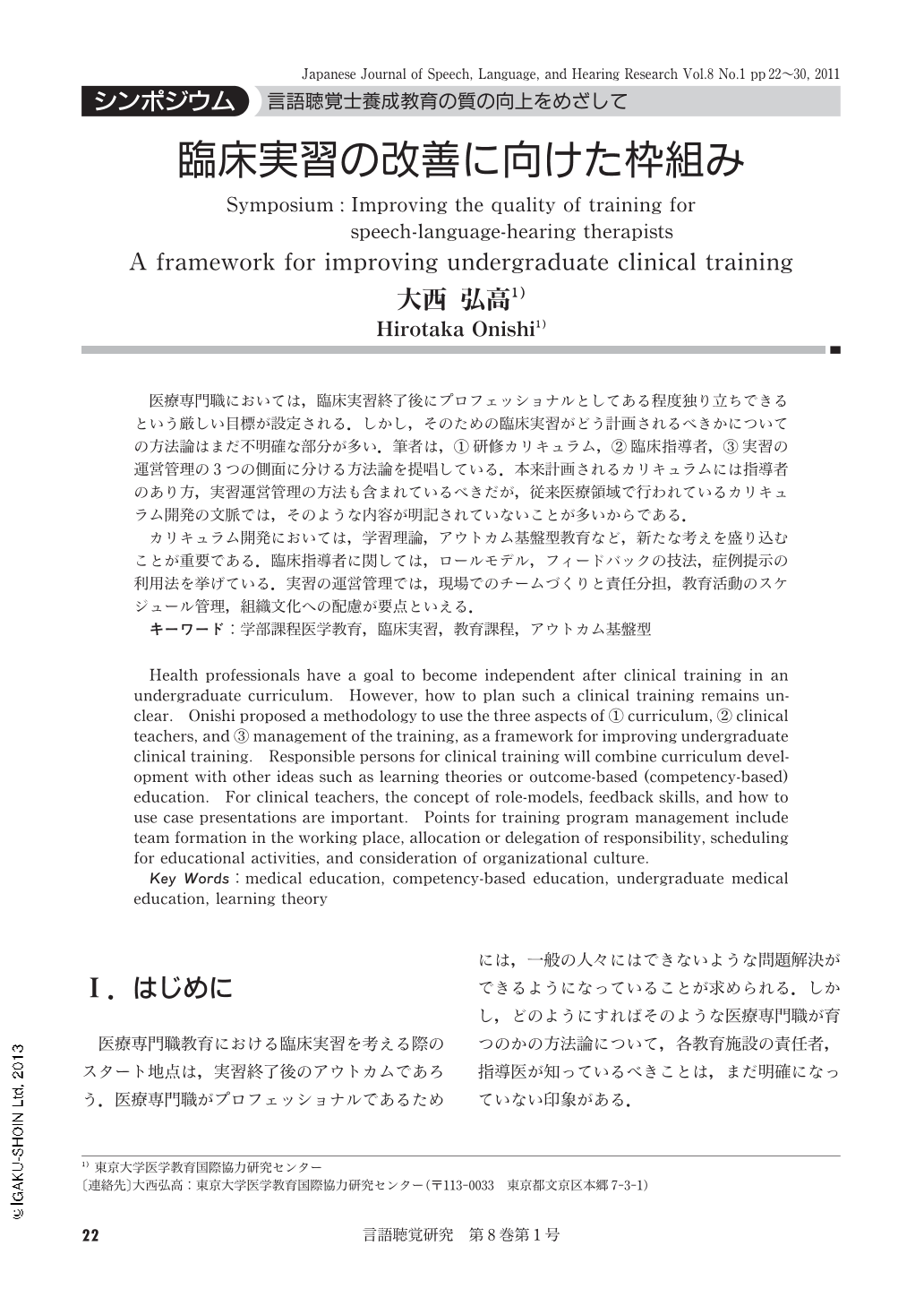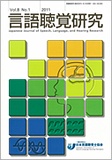Japanese
English
- 有料閲覧
- Abstract 文献概要
- 1ページ目 Look Inside
- 参考文献 Reference
医療専門職においては,臨床実習終了後にプロフェッショナルとしてある程度独り立ちできるという厳しい目標が設定される.しかし,そのための臨床実習がどう計画されるべきかについての方法論はまだ不明確な部分が多い.筆者は,①研修カリキュラム,②臨床指導者,③実習の運営管理の3つの側面に分ける方法論を提唱している.本来計画されるカリキュラムには指導者のあり方,実習運営管理の方法も含まれているべきだが,従来医療領域で行われているカリキュラム開発の文脈では,そのような内容が明記されていないことが多いからである.
カリキュラム開発においては,学習理論,アウトカム基盤型教育など,新たな考えを盛り込むことが重要である.臨床指導者に関しては,ロールモデル,フィードバックの技法,症例提示の利用法を挙げている.実習の運営管理では,現場でのチームづくりと責任分担,教育活動のスケジュール管理,組織文化への配慮が要点といえる.
Health professionals have a goal to become independent after clinical training in an undergraduate curriculum. However, how to plan such a clinical training remains unclear. Onishi proposed a methodology to use the three aspects of①curriculum, ②clinical teachers, and③management of the training, as a framework for improving undergraduate clinical training. Responsible persons for clinical training will combine curriculum development with other ideas such as learning theories or outcome-based (competency-based) education. For clinical teachers, the concept of role-models, feedback skills, and how to use case presentations are important. Points for training program management include team formation in the working place, allocation or delegation of responsibility, scheduling for educational activities, and consideration of organizational culture.

Copyright © 2011, Japanese Association of Speech-Language-Hearing Therapists. All rights reserved.


